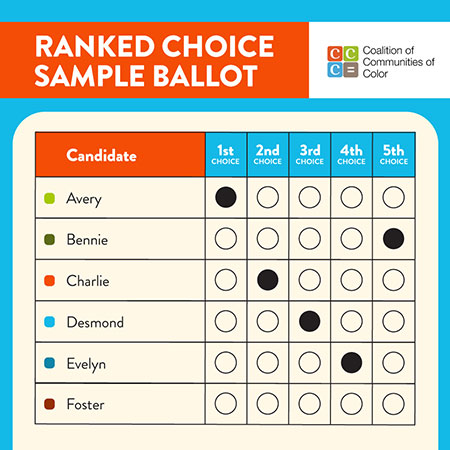By Rob Cullivan | CNews Editor

Residents of Concordia and other Portland neighborhoods may have a greater voice in their city government if a proposed city charter is approved by voters this November, the charter’s proponents say.
The proposed charter would change the city council’s makeup from its current one of four at-large members and the mayor to one made up of 12 members who will represent four districts, each with three council members representing it.
Furthermore, council members will no longer run city bureaus and voters will be able to use proportional ranked-choice voting to choose their council members. Proponents claim ranked-choice voting is more inclusive of underrepresented voters than the current simple majority system by which councilors are chosen.
The Concordia Neighborhood Association Board will host a discussion on the proposed Portland City Charter, at 7 pm Wednesday, Sept. 7, at McMenamins Kennedy School Community Room, 5736 N.E. 33rd Ave.
Three Big Changes
The independent 20-member City Charter Review Commission has been at work for more than 18 months gathering citizen input on the proposed charter. The proposed charter contains three key changes that affect how Portlanders vote, how they are represented and the scope of their leaders’ formal responsibilities.
Proportional Ranked-Choice Voting
Under the proposed charter, voters can rank their choices for city council members instead of simply voting for one person for each seat. You can choose any number of candidates, from the one you most want on down to the one you may not support strongly but can accept.
To win a seat in one of the four districts, candidates must reach a threshold of one vote more than 25% of all votes cast. Votes are then counted in rounds until all three seats representing a district are filled. Under a process called “Single Transferable Vote,” votes can be transferred in two ways to ensure voters are getting more use of their ballots.
First, if a candidate has surplus votes that put their total over the threshold, the surplus votes are transferred to whomever those voters marked as their next choice. The transferred votes are then added to the corresponding candidates.
Second, if no other candidate meets the threshold, the candidate with the fewest votes is eliminated and their votes get transferred to whomever those voters marked as their next choice. This process repeats until the three winners have enough votes to win a seat, giving voters more say in who their preferences are.
The theory behind this system is that such voting will give underrepresented constituencies a better shot at being represented than they are under the current system. Instead of just one representative, for example, getting in because they won a mere 51 percent of the voters, proponents said, you can have three representatives winning office with varying percentages of the overall vote.
Becca Uherbelau, a city charter commission member, said proportional ranked-choice voting would open up the city’s government to a greater range of voices.
“It actually results in better representation for folks who haven’t seen their interests represented,” she said. “Voters hate choosing between the lesser of two evils, and this way the voter has a better experience.”
Multi-member districts
Currently the at-large members of city council each represents the entire city of Portland, but under the proposed charter, the city would be divided into four districts with three council members representing each district. Charter proponents say this will allow voters to be able to more easily work with their council members to advocate for specific concerns. One such advocate is Concordia resident and political activist Mont Chris Hubbard, who testified before the charter commission.
“I think that city council will better represent the opinions of Portlanders when we have 12 of them elected with proportional representation,” Hubbard said.
Responsibilities Shift
Currently the mayor and city council members directly administer various departments, but under the new charter, the mayor would appoint a city administrator who in turn would then appoint administrators of such city departments as the police or the housing bureau.
Charter proponents contend this would free up the city’s political leadership to focus on their most important job, which is addressing constituent concerns, not managing bureaus. The current arrangement can lead to a “politicization of service delivery,” Uherbelau said, and replacing it means constituents can voice a concern to a council member, who can then take that concern to the mayor and/or city administrator who would then direct the bureau in charge of a service to address a concern. “You have a straighter line to both answer and solution,” she said.
Learn more about the proposed Portland city charter here.
CNews Editor Rob Cullivan is a veteran journalist, publicist and grant writer who has written about everything from rock ‘n’ roll to religion. He possesses a deep affection for writers and photographers who hit deadline.